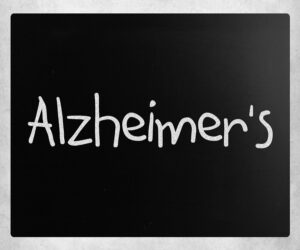The moment an elderly person is diagnosed with Alzheimer’s, it can be devastating. It affects everyone in that person’s life, from their spouse (if they are still married), adult children, grandchildren, friends, and even neighbors. Assisted living, especially memory care, is a great elder care option for seniors who have been diagnosed with some form of dementia, of which Alzheimer’s is just one.
Many people have questions about what seniors may or may not be able to do at assisted living when they’ve been diagnosed with Alzheimer’s.
What they may not be able to do really depends on the individual, how far along they are with regard to the various stages of Alzheimer’s, how advanced the symptoms and signs of Alzheimer’s have become, and other factors.
What they can do, though, depends on the facility, and below are a list of activities that may be incredibly beneficial for somebody who has been diagnosed with Alzheimer’s, whether they were recently diagnosed or it’s been a few years.
Potential Activity #1: Participating in arts and crafts activities.

Assisted Living Pascagoula, AL: Activities and Alzheimer’s
If the facility provides arts and crafts on a regular or semi regular basis, they might bring in an artist from outside who will give courses or classes on a wide range of artistic endeavors.
The senior who has been dealing with Alzheimer’s can enjoy the activity for what it is, but behind the scenes they may also gain other benefits, including the potential to help slow down the progression of memory loss due to increased mental stimulation (Fisher Center for Alzheimer’s Research Foundation).
That’s right, mental stimulation can potentially slow down the progression of memory loss, but this may be more realistic if the senior participates in these activities before or shortly after diagnosis. That doesn’t mean they will no longer be helpful, even if a person only begins them four or five years after diagnosis; participating in these activities can potentially help to increase quality of life, stave off depression or depressive symptoms, and help the senior still feel as though life is worth living.
Potential Activity #2: Music.
As with arts and crafts, music can be a wonderful activity for people of all ages, and it doesn’t necessarily mean the senior will be learning a new musical instrument.
Music appreciation, especially classical music appreciation, can be incredibly rewarding for numerous reasons. The patterns and notes of classical music has been known to stimulate certain neural regions, provide a sense of peace and comfort, and even help seniors relax.
Potential Activity #3: Physical exercise.
Few things are more beneficial for brain health and physical exercise. The more exercise a person gets — regardless of age — the more it elevates the heart rate, increases circulation throughout the body, and that boosts oxygen flow to the brain.
Some elder care assisted living facilities may have fitness centers, yoga instructors, or just wonderful grounds for seniors to walk and enjoy the beautiful days.
For any senior who has been diagnosed and is dealing with Alzheimer’s or another type of dementia, assisted living remains one of the leading elder care options, especially as they move through the various stages of these conditions.


Follow Us!